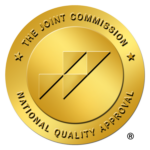In the journey towards recovery from substance abuse, one size does not fit all. While some individuals may thrive in a residential treatment setting, others may find outpatient treatment to be a more suitable option. Outpatient treatment programs offer flexibility, accessibility, and personalized care, making them an invaluable resource for individuals seeking recovery while maintaining their daily responsibilities. In this blog post, we’ll explore the numerous benefits of outpatient treatment in New Jersey and how it can empower individuals to achieve lasting sobriety and wellness.
Flexibility and Convenience
One of the most significant advantages of outpatient treatment is its flexibility. Unlike residential programs that require clients to reside at the treatment facility, outpatient programs allow individuals to attend therapy sessions, counseling, and group meetings while living at home. This flexibility enables clients to continue working, attending school, and fulfilling family obligations while receiving the support they need to stay sober.
In New Jersey, where bustling cities and suburban communities are intertwined, outpatient treatment offers convenience for individuals living in diverse geographic locations. With numerous outpatient treatment centers located throughout the state, clients have access to quality care without the need for extensive travel or relocation.
Personalized Treatment Plans
Outpatient treatment programs in New Jersey emphasize personalized care tailored to the unique needs and circumstances of each client. Upon entering treatment, individuals undergo a comprehensive assessment to identify their specific challenges, strengths, and goals for recovery. Based on this assessment, experienced clinicians develop individualized treatment plans that address the client’s physical, psychological, and social needs.
Whether clients require intensive therapy, medication-assisted treatment, dual diagnosis support, or holistic therapies, outpatient programs offer a wide range of services to meet diverse treatment needs. This personalized approach ensures that clients receive the appropriate level of care and support to achieve long-term sobriety and wellness.
Integration of Real-Life Skills
Outpatient treatment in New Jersey fosters the integration of real-life skills and coping mechanisms into everyday situations. Clients learn practical strategies for managing cravings, navigating triggers, and coping with stressors in their home, work, and social environments. By applying these skills in real-life scenarios, individuals gain confidence and resilience in their ability to maintain sobriety outside of treatment.
Additionally, outpatient programs often offer educational workshops, life skills training, and vocational assistance to help clients build a foundation for success beyond addiction. From resume-building to budgeting to communication skills, these resources empower individuals to create fulfilling lives free from the constraints of substance abuse.
Strong Support Networks
Recovery is a journey that is best traveled with support from others who understand and empathize with the challenges of addiction. Outpatient treatment programs in New Jersey provide clients with access to a supportive community of peers, counselors, and recovery specialists who share a common goal of sobriety and wellness.
Group therapy sessions, support groups, and community-based resources offer opportunities for connection, encouragement, and accountability throughout the recovery process. These strong support networks help individuals build meaningful relationships, develop healthy coping mechanisms, and cultivate a sense of belonging that is essential for long-term recovery.
Continued Engagement and Follow-Up
Outpatient treatment programs in New Jersey prioritize continued engagement and follow-up care to support clients in maintaining their sobriety beyond the initial treatment phase. After completing the primary outpatient program, individuals may transition to step-down programs, aftercare services, or alumni programs to ensure ongoing support and accountability.
Follow-up appointments, relapse prevention planning, and regular check-ins with treatment providers help individuals stay connected to their recovery goals and address any emerging challenges or concerns. By fostering a culture of ongoing engagement and support, outpatient treatment programs empower individuals to sustain their recovery journey for years to come.
What to Expect at Outpatient Treatment in New Jersey
Entering outpatient treatment in New Jersey can be a significant step towards reclaiming your life from the grip of addiction. If you’re considering this option, it’s natural to have questions about what to expect. Here’s a breakdown of what you can anticipate when enrolling in outpatient treatment in New Jersey.
Upon entering outpatient treatment, you’ll undergo a thorough assessment by experienced clinicians. This assessment helps determine the extent of your addiction, any co-occurring mental health issues, and your unique treatment needs. Expect questions about your substance use history, medical background, mental health symptoms, family dynamics, and personal goals for recovery.
Based on the assessment findings, a personalized treatment plan will be developed to address your specific needs and goals. This plan may include a combination of therapy modalities, medication-assisted treatment (if applicable), group counseling, educational workshops, and holistic therapies. Your treatment plan will evolve over time as you progress in your recovery journey.
Treatments At Outpatient Treatment In New Jersey
Therapy is one of the cornerstone benefits of outpatient treatment in New Jersey. You can expect to participate in individual counseling sessions with a licensed therapist to explore underlying issues contributing to your addiction, learn coping skills, and set goals for recovery. Group therapy sessions offer opportunities to connect with peers, share experiences, and receive support from others facing similar challenges.
If you’re struggling with opioid addiction, medication-assisted treatment (MAT) may be offered as part of your outpatient program. MAT involves the use of medications, such as methadone, buprenorphine, or naltrexone, to reduce cravings and withdrawal symptoms while you focus on your recovery. MAT is often combined with counseling and behavioral therapies for optimal results.
Learn More About The Benefits Of Outpatient Treatment In New Jersey
Outpatient treatment in New Jersey offers a pathway to recovery that is flexible, personalized, and empowering. By providing individuals with the tools, resources, and support they need to navigate the complexities of addiction while maintaining their daily lives, outpatient programs pave the way for lasting sobriety and wellness. If you or someone you love is struggling with substance abuse, consider exploring the benefits of outpatient treatment in New Jersey and take the first step towards a brighter, healthier future. Contact Full Of Life Recovery Center’s admissions team today to learn more.





